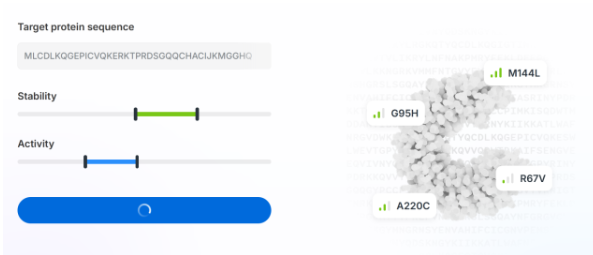Dutch company Cradle is using artificial intelligence to revolutionize the field of protein design. They liken protein design to an "alien programming language" and use AI models to compress the originally long and expensive protein development process to unprecedented efficiency. Cradle's AI can accurately predict and design proteins. For example, it can design proteins that are more stable to high temperatures and provide optimal sequences, which provides a powerful tool for life science research.
Now, scientists can "design" proteins with as much precision as programming. This is no longer science fiction, but a reality that Dutch company Cradle is creating.
In the grander picture of biotechnology, Cradle founder Stef van Glicken likens proteins to an "alien programming language." His team is using artificial intelligence to interpret this mysterious language and bring revolutionary changes to biotechnology.
Traditional protein development can feel like a long and expensive blind quest. Researchers need to go through dozens of rounds of experiments, each of which can cost tens to hundreds of thousands of dollars. But Cradle uses AI to compress this process to unprecedented efficiency.

For example, if scientists needed a protein that was more stable to high temperatures, it would have required repeated experiments. Now, Cradle's AI model can directly identify and recommend the best sequence, which not only maintains the original function, but also improves the heat resistance of the protein. It's like finding the optimal solution to the code of life.
What's even more amazing is that Cradle's business model is so simple and elegant: a plug-and-play software service. There are no complicated royalties, revenue sharing, or intellectual property disputes involved. Researchers can focus on innovation rather than getting bogged down in tedious business negotiations.
The $73 million in financing it just received will be used to expand the laboratory and recruit more top talents. Van Glicken's ultimate goal is to bring this technology to the benefit of millions of scientists, which is simply a "moonshot" in the field of biotechnology.
In the vast universe of life sciences, AI is quietly becoming the most powerful exploration tool. Cradle's use of intelligence to redefine the possibilities of protein design proves that the boundaries of technology and imagination are constantly being pushed through.
This is not only the story of a company, but also another amazing attempt by mankind to understand and reshape the nature of life.
The success of Cradle indicates that artificial intelligence will play an increasingly important role in the field of biotechnology and bring more benefits to mankind. This is not only a technological breakthrough, but also a profound exploration of life sciences. The future is full of infinite possibilities.